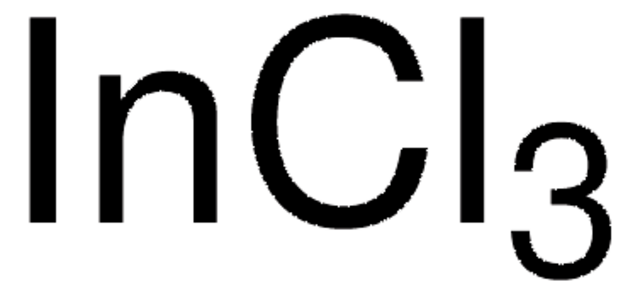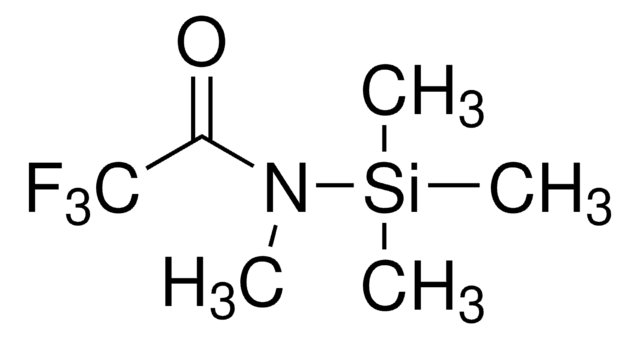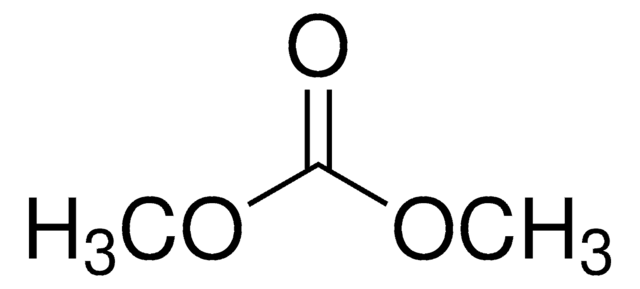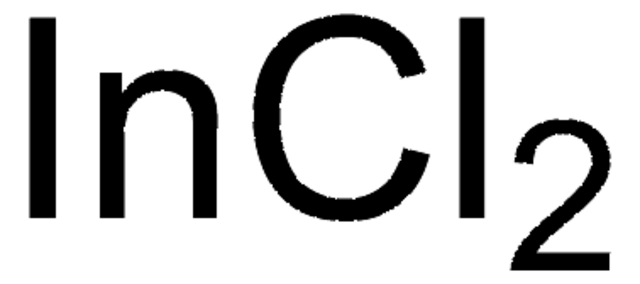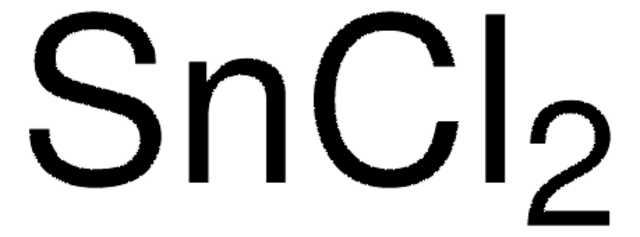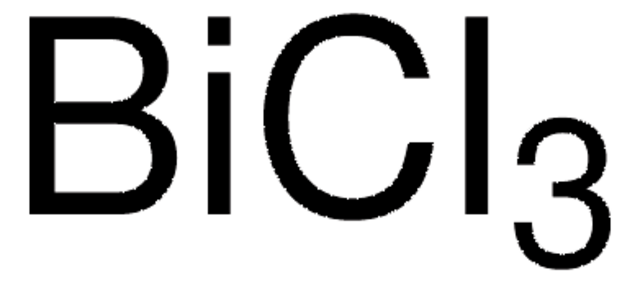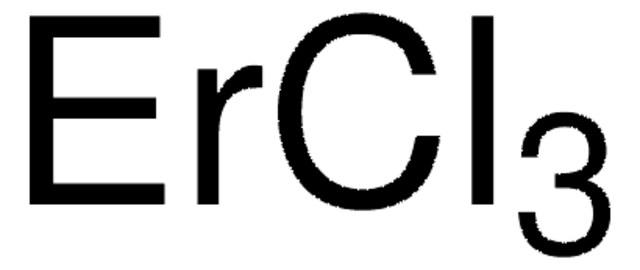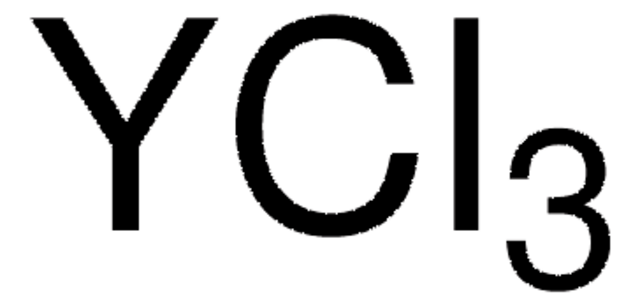429414
Indium(III) chloride
anhydrous, powder, ≥99.999% trace metals basis
Synonym(s):
Trichloroindigane, Indium trichloride
About This Item
Recommended Products
grade
anhydrous
Quality Level
Assay
≥99.999% trace metals basis
form
powder
reaction suitability
reagent type: catalyst
core: indium
impurities
<100 ppm H2O
density
3.46 g/mL at 25 °C (lit.)
SMILES string
Cl[In](Cl)Cl
InChI
1S/3ClH.In/h3*1H;/q;;;+3/p-3
InChI key
PSCMQHVBLHHWTO-UHFFFAOYSA-K
Looking for similar products? Visit Product Comparison Guide
General description
Application
- Indolylindolines through self-addition of indoles.
- Vinyl indoles from unfunctionalized indoles and vinyl azides.
- Variety of cycloadducts through the reaction of olefinic acetals with isoprene and cyclopentadiene.
- N-tosylimines through a condensation reaction of aldehydes with p-toluenesulfonamide.
accessory
Signal Word
Danger
Hazard Statements
Precautionary Statements
Hazard Classifications
Aquatic Chronic 3 - Eye Dam. 1 - Skin Corr. 1C - STOT RE 1 Inhalation
Target Organs
Lungs
Storage Class Code
6.1C - Combustible acute toxic Cat.3 / toxic compounds or compounds which causing chronic effects
WGK
WGK 3
Flash Point(F)
Not applicable
Flash Point(C)
Not applicable
Personal Protective Equipment
Regulatory Listings
Regulatory Listings are mainly provided for chemical products. Only limited information can be provided here for non-chemical products. No entry means none of the components are listed. It is the user’s obligation to ensure the safe and legal use of the product.
PRTR
Class I Designated Chemical Substances
ISHL Indicated Name
Substances Subject to be Indicated Names
ISHL Notified Names
Substances Subject to be Notified Names
JAN Code
429414-25G-PW:
429414-5G-PW:
429414-PB:
429414-BULK:
429414-5G:4548173314419
429414-VAR:
429414-25G:4548173314402
Choose from one of the most recent versions:
Already Own This Product?
Find documentation for the products that you have recently purchased in the Document Library.
Customers Also Viewed
Articles
Spectral conversion for solar cells is an emerging concept in the field of photovoltaics, and it has the potential to increase significantly the efficiency of solar cells. Lanthanide ions are ideal candidates for spectral conversion, due to their high luminescence efficiencies and rich energy level structure that allows for great flexibility in the upconversion and downconversion of photons in a wide spectral region (NIR-VIS-UV).
Related Content
We offer a complete line of the highest purity inorganic salts and materials for the micro and nanoelectronics market.
Our team of scientists has experience in all areas of research including Life Science, Material Science, Chemical Synthesis, Chromatography, Analytical and many others.
Contact Technical Service